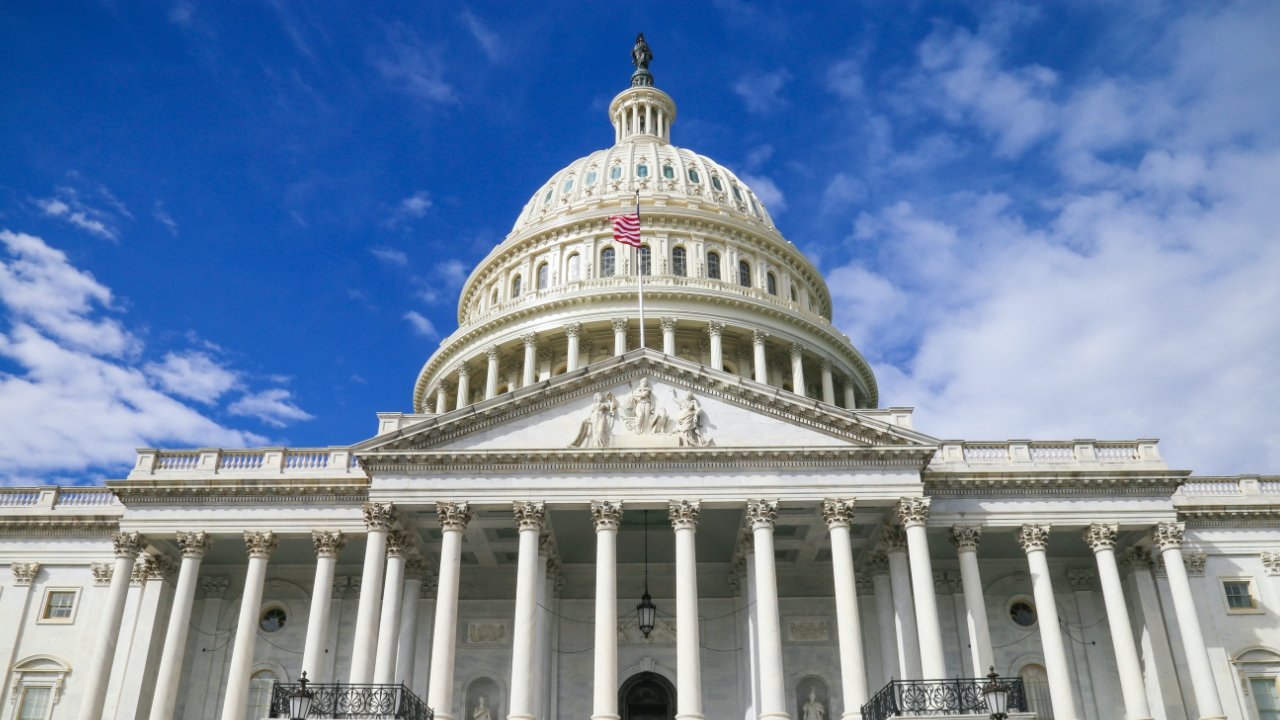Two groups both claiming to represent small business interests in the United States have each released open letters, one urging Congress to leave big tech alone as it gives a platform to businesses that might not get one — and one supporting the bill.
Following Apple's assertion that proposed antitrust bills would hurt consumers and security, two groups have written to Congress about the American Innovation and Choice Online Act. Both represent small businesses, both believe the proposals will harm their members, and each completely disagrees with the other.
One group consists of "more than 35" technology firms, including Yelp, Sonos, and DuckDuckGo. In its full letter to Congress, this group says that the Act would "help restore competition in the digital marketplace and remove barriers for consumers to choose the services they want."
"For too long, dominant technology companies have made it difficult for other businesses to compete in the digital marketplace by abusing their gatekeeper status to give themselves and their partners preferential treatment and access on their platforms," continues the letter. "The Committee must act now to restore competition to the digital marketplace by voting 'aye' on favorably reporting Senate Bill S. 2992, the American Innovation and Choice Online Act."
Meanwhile, a group represented by the Connected Commerce Council (3C) claims that "nearly 7,000 small businesses sent more than 20,000 letters" urging Congress to oppose the bill.
"For over a year Congress has ignored small businesses' concerns about recklessly ramming through sweeping anti-technology legislation," 3C executive director Rob Retzlaff said in a statement. "Small businesses shouldn't have to beg their elected officials to listen to them."
"Yet, here we are because certain lawmakers are more concerned about scoring political points than doing their jobs," continued Retzlaff. "They seemingly are listening to conscience-stricken tech industry billionaires who favor misguided legislation rather than small business taxpayers who live in their districts and employ their constituents."
Contrasting business interests
The letter from the group supporting the legislation lists its 35 members, while that from 3C opposing it does not. AppleInsider checking of 3C's membership businesses shows a stark discrepancy between the two groups.
Firms on the list supporting the legislation tend to be multinational companies, with valuations in the high millions or billions, such as Yelp and Sonos. The 3C member groups that AppleInsider checked are all vastly smaller, and include single-owner firms that began as Etsy shops.
Separately, Senator Amy Klobuchar, who introduced the act, has argued that it is time that US law "caught up to a major, major part of our economy."
Congress is expected to consider the American Innovation and Choice Online Act very soon, and may also debate the related Open App Markets Act.
 William Gallagher
William Gallagher







-m.jpg)






 Malcolm Owen
Malcolm Owen

 Amber Neely
Amber Neely




 Oliver Haslam
Oliver Haslam

-m.jpg)






9 Comments
I am kind of surprise that small business would argue not to change anything, and that big tech is doing what is in the best interests of small business.
But it only 7000 of the more than 3 million small businesses in the US. I would suspect that 0.2% of all the small businesses do not represent the larger population. Again it is small loud minority making everyone think they represent everyone.
When they say "restore" competition to the digital marketplace, what are they referencing? Is there a past time period for digital products that they consider to be more competitive than today? It can't be anything that existed prior to smartphones because smartphones lowered the expected price for software used by mainstream consumers. That's one of the realities that makes the Senate approach so nonsensical. If competition is worse in the smartphone era, why are prices lower than when software was only available on desktop/laptop hardware?
I'm not sure I have the answers, but I do think action needs to be taken to address Big Tech's power. The problem is behemoths like Google, Facebook and Amazon have used their dominant positions to stifle competition, speech and even influence elections. Apple may have some issues with its App Store, but I largely put it in another class. Moreover, you have companies like Twitter who are clearly acting as authoritarian ideologues, and are violating the spirit of Section 230.
There are few major actions I think that were should consider:
1. Break-up Google, Facebook and Amazon. Google (Alphabet) should not be able to use its search dominance to dominate other areas, such as Video Sharing and Maps. Facebook should not be able to use its vast data tribe and infiltration of the entire web to dominate other business areas and prevent competition in the social media sphere. Amazon should not be able to use AWS to stifle competition in a number of areas, from online shopping to web services, to platforms they simply don't like. These companies have become far too powerful. Time to get out the Sherman Hammer.
2. Reform Section 230. Make it clear that Twitter, Facebook, YouTube and other large socials are common carriers. That is, they cannot discriminate against content by acting as publishers. If they do, they can be sued civilly by both private parties and the government. These mammoth platforms have become the new public square. They should only be able to block or downgrade content that is illegal, contains specific threats, etc.
3. The FEC needs to be strengthened and needs to get involved in the impact of these large companies on elections. Facebook and Google openly boast about their ability to push voter turnout in some areas but not others, suppress news stories, and more. Privately, the CEO of Facebook spent almost half a billion dollars on the Center for Tech and Civic Life, which awarded grants to mostly Democratic areas for turnout and running elections. In many areas, 90% of the money went to one side. The privatization of our elections cannot be allowed, and should be a clear violation of campaign finance laws.